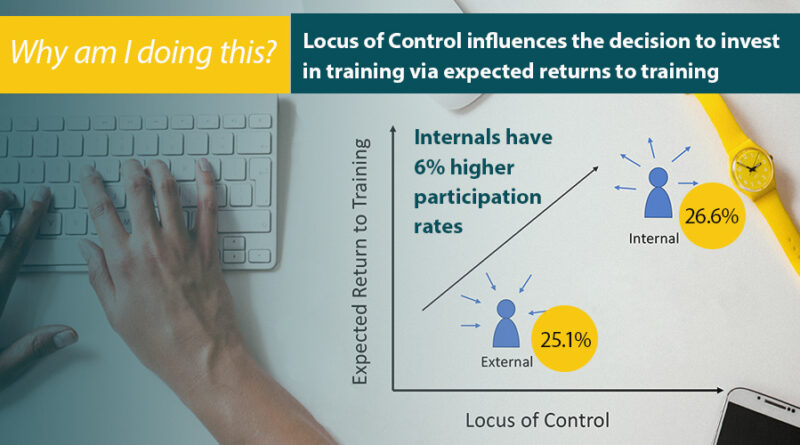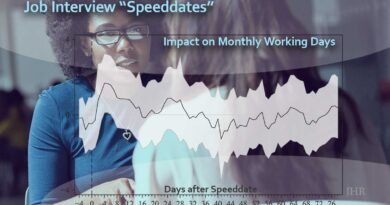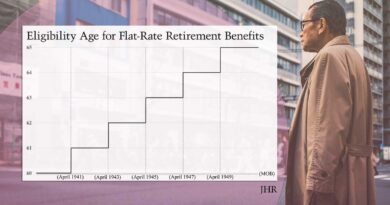Is This Worth My Time? How Does Locus of Control Affect Workers’ Training Choices?
Work-related training allows workers to improve their skills and stay up-to-date, but many workers do not regularly participate. Marco Caliendo, Deborah Cobb-Clark, Cosima Obst, Helke Seitz, and Arne Uhlendorff asked whether “locus of control” influences the training decision. The locus of control is a psychological concept that describes the extent to which an individual believes their actions influence their lives. The hypothesis was that workers with an internal locus of control expect a strong link between participating in training (their actions) and future wages (return), while workers with an external locus of control would not.
According to the team it’s more important than ever to understand which workers underinvest in their careers and how these workers can be specifically encouraged to participate in training, especially given the constantly evolving demand for new skills in today’s workplace. They used data from the German Socio-Economic Panel to model how locus of control affects training decisions to get a broad look at the issue.
Comparing the training participation behavior of internal and external individuals, they found that “internals” are 6% more likely to invest in training. Additionally, workers with an internal locus of control expect higher wages in the near future. This provides evidence that the locus of control influences the training participation decision through the expected return to training.
An interesting, but perhaps not surprising, detail of their findings is that this relationship differs depending on the type of training. If training is not expected to yield any monetary returns for the worker, locus of control does not influence the training decision.
So is money the bottom line? Caliendo summarizes, “Our results suggest that external individuals underinvest in training because they do not believe it to be worth the effort. In order to encourage such workers to participate, it would be useful to inform the workers more specifically of the benefits to training.”
Read the study in the Journal of Human Resources: “Locus of Control and Investment in Training” by Marco Caliendo, Deborah A. Cobb-Clark, Cosima Obst, Helke Seitz, and Arne Uhlendorff.
***
Marco Caliendo (@MCcaliendo) is at University of Potsdam, IZA, DIW, and IAB. Deborah A. Cobb-Clark is at University of Sydney, IZA, and ARC Life Course Centre. Cosima Obst is at University of Potsdam. Helke Seitz (@HelkeSeitz) is at DIW Berlin. Arne Uhlendorff (@UhlendorffA) is at CREST, CNRS, IAB, IZA, and DIW.
Funding acknowledgments:
Caliendo is grateful to the Melbourne Institute for financial support during his research visit during which part of this research has been conducted. Cobb-Clark is grateful for financial support from the Australian Research Council (DP110103456). Uhlendorff is grateful to Investissements d’Avenir (ANR-11-IDEX-0003/Labex Ecodec/ANR-11-LABX-0047) for financial support.




